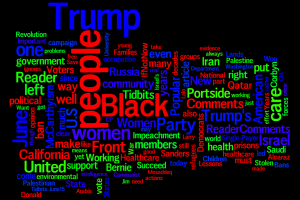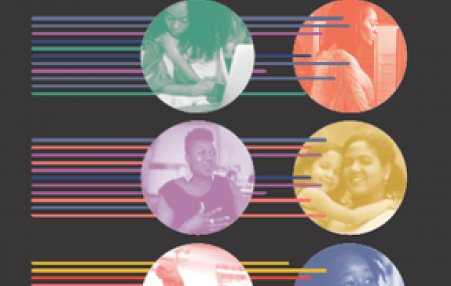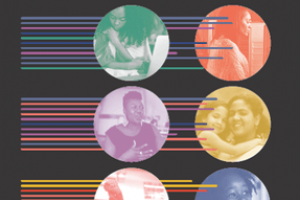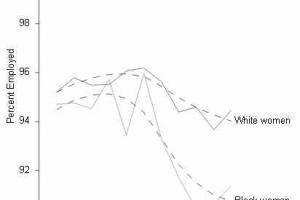The Census Data Has Bad News for Black and Latinx Americans
ThinkProgress
Dulce Sloan breaks down why African-American women are responsible for helping Roy Moore lose the Alabama Senate race.
 Reader Comments: Impeachment, Not McCarthyism - Differing Reader Views; Who Were Trump Voters; Bernie Sanders, Our Revolution and the Working Families Party; United Front, Popular Front Lessons; Why Corbyn Won; Healthcare for All God's Children; California Single-Payer; A Message to Our Community on 50 Years of Occupation; Resources: When Black Women Succeed, All Women Succeed; Iran 1953: State Department Finally Releases Updated Official History of Mosaddeq Coup; more..
Reader Comments: Impeachment, Not McCarthyism - Differing Reader Views; Who Were Trump Voters; Bernie Sanders, Our Revolution and the Working Families Party; United Front, Popular Front Lessons; Why Corbyn Won; Healthcare for All God's Children; California Single-Payer; A Message to Our Community on 50 Years of Occupation; Resources: When Black Women Succeed, All Women Succeed; Iran 1953: State Department Finally Releases Updated Official History of Mosaddeq Coup; more..
 Black women consistently work for a better country, but our country is not working for them. By placing Black women’s experiences and interests in the forefront of policy changes and social movements, we can address these barriers. A new report on the Status of Black Women written and co-produced by Institute for Women's Policy Research and National Domestic Workers Alliance that paints a picture of the lived experiences of millions of Black women across the US.
Black women consistently work for a better country, but our country is not working for them. By placing Black women’s experiences and interests in the forefront of policy changes and social movements, we can address these barriers. A new report on the Status of Black Women written and co-produced by Institute for Women's Policy Research and National Domestic Workers Alliance that paints a picture of the lived experiences of millions of Black women across the US.
 Black women consistently work for a better country, but our country is not working for them. By placing Black women’s experiences and interests in the forefront of policy changes and social movements, we can address these barriers. A new report on the Status of Black Women written and co-produced by Institute for Women's Policy Research and National Domestic Workers Alliance that paints a picture of the lived experiences of millions of Black women across the US.
Black women consistently work for a better country, but our country is not working for them. By placing Black women’s experiences and interests in the forefront of policy changes and social movements, we can address these barriers. A new report on the Status of Black Women written and co-produced by Institute for Women's Policy Research and National Domestic Workers Alliance that paints a picture of the lived experiences of millions of Black women across the US.
 Reader Comments: Trump Failure Answer is Single Payer; Gorsuch-"Originalist" Disaster; Israel Segregationist and Apartheid; Left Growth Today - Religious Left, Socialists, Feminists; Censorship and Art - Emmett Till painting; PBS; Maine Fishermen; Job Growth and Worker Injury;
Resources: Teachers’ Union Guide for Immigrant and Refugee Children; Announcements: Black Women in the Media; Chicago-April 4; 81st Annual Celebration of the Lincoln Brigade; and more...
Reader Comments: Trump Failure Answer is Single Payer; Gorsuch-"Originalist" Disaster; Israel Segregationist and Apartheid; Left Growth Today - Religious Left, Socialists, Feminists; Censorship and Art - Emmett Till painting; PBS; Maine Fishermen; Job Growth and Worker Injury;
Resources: Teachers’ Union Guide for Immigrant and Refugee Children; Announcements: Black Women in the Media; Chicago-April 4; 81st Annual Celebration of the Lincoln Brigade; and more...
 Reader Comments: Protests Should Also be Used for Organizing; Another Extreme Trump Nominee to Run National Intelligence; Top Prosecutor in Leonard Peltier Case Urges Clemency; Hidden Figures; Black Women and Civil Rights; It's Time to #TeachResistance: A Toolkit for Educators; Announcements and more....
Reader Comments: Protests Should Also be Used for Organizing; Another Extreme Trump Nominee to Run National Intelligence; Top Prosecutor in Leonard Peltier Case Urges Clemency; Hidden Figures; Black Women and Civil Rights; It's Time to #TeachResistance: A Toolkit for Educators; Announcements and more....
 Historically, the public sector has served as an equalizing institution through the expansion of job opportunities for minority workers. This study examines whether the public sector continues to serve as an equalizing institution in the aftermath of the Great Recession. Results point to a post-recession double disadvantage for Black women: they are concentrated in a shrinking sector of the economy, and they are substantially more likely be without work.
Historically, the public sector has served as an equalizing institution through the expansion of job opportunities for minority workers. This study examines whether the public sector continues to serve as an equalizing institution in the aftermath of the Great Recession. Results point to a post-recession double disadvantage for Black women: they are concentrated in a shrinking sector of the economy, and they are substantially more likely be without work.
 As gaps in income and wealth continue to widen in the United States and structural and institutional barriers to economic security persist, this report reminds us that there is still much work to do to ensure that all women, children, and families have a fair shot at success and opportunity in our society.
As gaps in income and wealth continue to widen in the United States and structural and institutional barriers to economic security persist, this report reminds us that there is still much work to do to ensure that all women, children, and families have a fair shot at success and opportunity in our society.
Spread the word